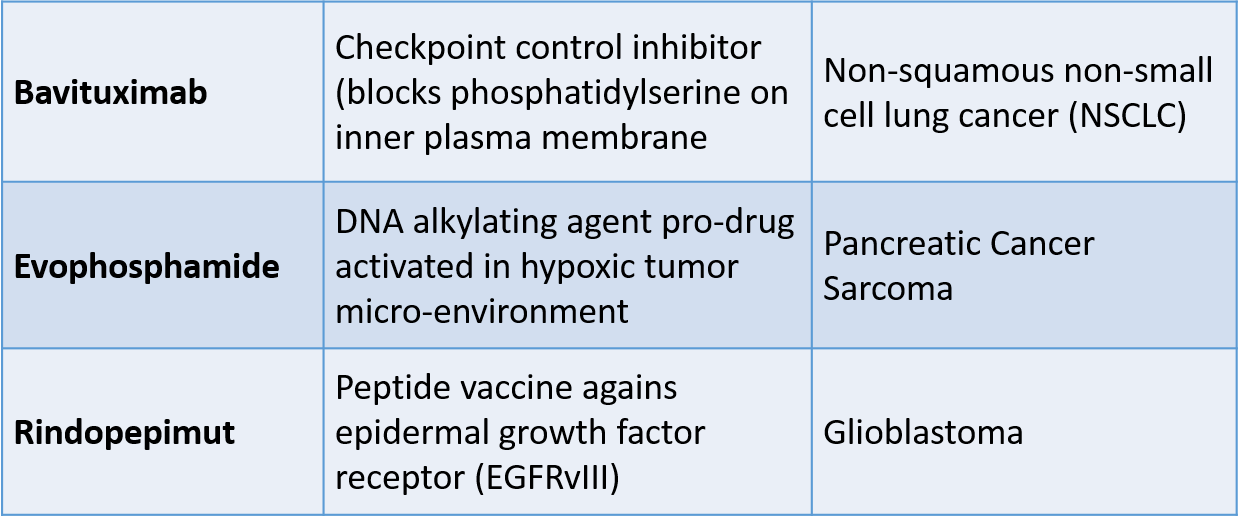MET is a gene that encodes a receptor tyrosine kinase that is activated upon binding with hepatocyte growth factor (HGF, or Scatter Factor). Specifically, MET is a Continue reading
Tag Archives: EGFR
Tagrisso is superior to platinum-based chemotherapy for patients with relapsed lung cancer following front-line anti EGFR therapy
Tagrisso (osimertinib) is a kinase inhibitor indicated for patients with metastatic epidermal growth factor T790M mutation-positive lung cancer. It was approved under accelerated approval provisions in November 2015 on the basis of phase 2 trials demonstrating a combined overall objective response rate of 59%. Continue reading
Neratinib for breast cancer – the key is managing gastrointestinal toxicity
Neratinib is an irreversible tyrosine-kinase inhibitor of EGFR (epidermal growth factor receptor), as well as HER1, HER2, and HER4. It is being developed for patients with breast cancer. It blocks many signal transduction pathways that result in proliferation and invasion, leading to cell cycle arrest and apoptosis. (Figures 1 and 2). Continue reading
Photo-immunotherapy approaches for cancer
The NCI (National Cancer Institute) highlighted two photo-immunotherapy (PIT) approaches that employ antibodies conjugated to phthalocyanine dye IRDye 700DX (IR700). Continue reading
Rociletinib for Resistant Non-Small Cell Lung Cancer Patients with EGFR T790M Mutation – Anthony J. Meglio, Contributor
There are two major subtypes of lung cancer: Non-Small Cell Lung Cancer (NSCLC), which accounts for 85% of all cases, and Small Cell Lung Cancer (SMLC). About 60% of NSCLC are unresectable at diagnosis, hence, the poor prognosis – ten to twelve months survival when treated with platinum-based chemotherapy. Treatment options are evaluated based on the histologic subtype and the presence of mutations to determine the the best combination of molecular therapies for treatment. Ten to twenty percent of patients with NSCLC have a mutated epidermal growth factor receptor, most commonly. a deletion in the in-frame of exon 19 (around amino acid 747 to 752) or a L858R point mutation of exon 21. On June 1, 2016, the FDA approved the first blood test (liquid biopsy) companion diagnostic to determine whether these mutations are present. Continue reading

Three Recent Late Stage Disappointments for Lung Cancer, Pancreatic Cancer, Sarcoma, and Glioblastoma
In the last several months, three novel drugs that we have been following on this blog failed in late stage clinical trials. The drugs have diverse mechanisms of action:

EGFR Antibody Necitumumab Recommended for Lung Cancer & Other Anti-EGFR MAb’s to Address EGFR Resistance
The Oncology Drug Advisory Committee voted (informally) to recommend approval of Lilly’s necitumumab in combination with gemcitabine and cisplatin for the first-line treatment of patients with locally advanced or metastatic squamous non–small cell lung cancer (NSCLC). Continue reading

Lung Cancer Drug for Patients with Resistant T790 EGFR Mutation
The epidermal growth factor receptor (EGFR) receives signals from outside the cell that promote cell division and block apoptosis, leading to proliferation, invasion, and metastasis. Continue reading

Vectibix Extends Survival in Colon Cancer
A Phase III study in patients with chemo-refractory colorectal cancer with wild-type K-ras genotype demonstrated that Amgen’s Vectibix (panitumumab) improved overall survival compared to best supportive therapy, alone. A total of 377 patients were randomized to receive best supportive care with or without intravenous infusions of Vectibix every 14 days. Full results of the study will be presented at a future medical meeting and submitted for publication. Continue reading

New Epidermal Growth Factor Strategies in the Clinic for Glioblastoma & Lung Cancer
Two companies, Celldex and Clovis, reported positive developments with their strategies to target the mutated Epidermal Growth Factor Receptor for patients with glioblastoma and lung cancer. Continue reading

